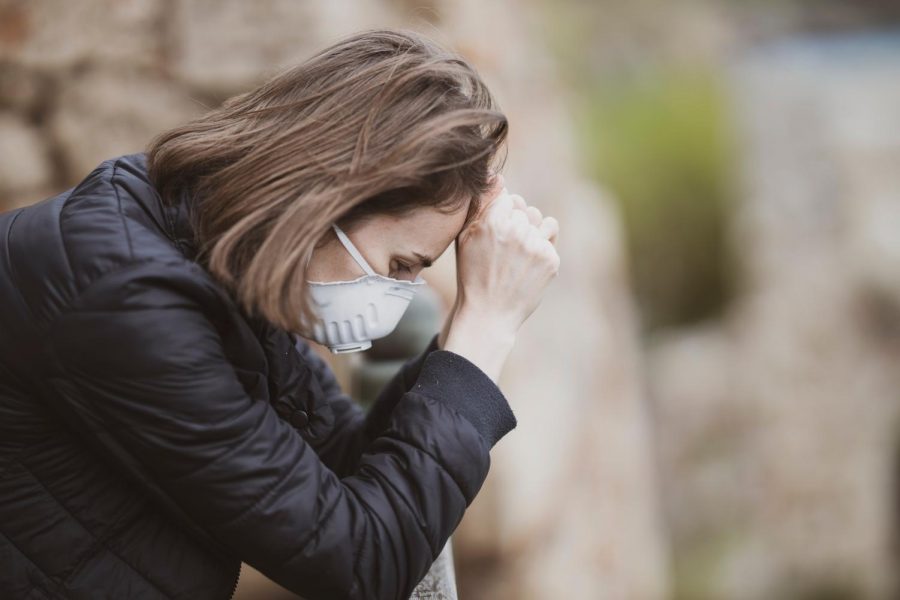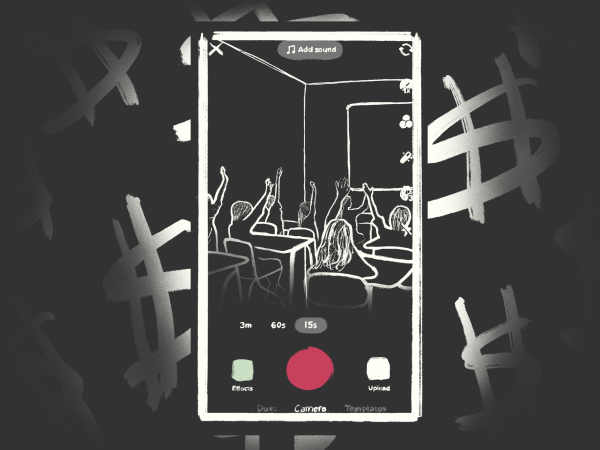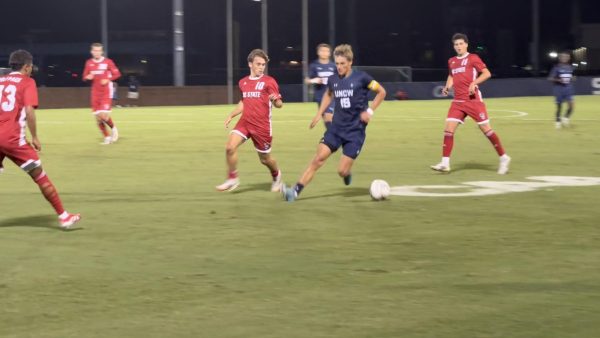OPINION: America’s mental health crisis is worsening due to COVID-19
The COVID-19 pandemic has put enormous strain on the lives of so many people around the world. America in particular is experiencing this pandemic alongside a consequential election season, the outcry for racial justice, and an already existing mental health epidemic. 2020 has not been an easy year to cope with, and many are left with feelings of hopelessness and despair due to the prolonged uncertainty.
According to a Pew Research Study, 9 in 10 Americans say that their lives have been changed due to COVID-19. Additionally, 4 in 10 Americans say that their lives have changed in a major way since the start of the pandemic. This is primarily attributed to income and educational level, as 33% of Americans have reported someone in their household either losing a job or taking a pay cut. Income security is the main stressor for most people, especially as America faces a severe economic recession.
Younger people seem to be faring the worst when it comes to mental health and COVID-19. A recent study showed that 56% of Americans between the ages of 18 and 34 reported feeling isolated and lonely. This is leading to an increase in a variety of psychosomatic ailments, including headaches, difficulty sleeping and back pain.
Young people also attribute feelings of loneliness and helplessness to their social media usage. There are some that choose to defy public health guidelines to attend large gatherings and go to bars or parties, then proceed to advertise it on their social media platforms. This only exacerbates the negative feelings of those who have not seen their friends and family regularly throughout the pandemic. It is difficult to see that your own compliance with guidelines is saving lives, while the reckless behavior of others continues to prolong the crisis. It is hard to believe that anyone else truly cares about the lives of those affected deeply by this virus. Those thoughts are crippling, especially when you are young and time feels like forever.
It is possible that younger folks are being hit harder with these feelings because of their inexperience in coping with national or international crises. During the ‘08 recession, many people in this age group would have been too young to fully feel the impact of the economic downturn. History has shown that despite difficult and dark times, we often emerge with strength. It is easy to say in hindsight, but much more difficult to see past the present moment of despair. Older generations are more “seasoned” when it comes to hard times. Many experienced events such as the Cold War, the Civil Rights Movement, the Vietnam War and 9/11, and are able to recall their emotions surrounding the events.
However, COVID-19 is different in regard to the isolationism we are experiencing due to the nature of the crisis. People are unable to see their loved ones or cope with these stressors in “normal” ways, such as getting exercise on a normal basis, sleeping well, or having positive social interactions with friends. We as a society are constantly living on the edge, worrying that our sense of consistency and stability will suddenly be swept away from us. People have turned towards substance use as a coping mechanism, as alcohol and drug usage has risen amid this crisis.
The pandemic has given us a lot of time to ourselves. For those experiencing feelings of loneliness, staying connected with loved ones and friends over Zoom or FaceTime is crucial. Even though it is not the same as seeing them in person, it is all a part of adjusting to this new normal that we are coping with. Having those types of interactions at least once a day will increase positive outlook and serotonin production. We need others in our lives one way or another.
Exercising regularly can help boost your mood and help you get a better sleep at night. It improves your blood flow and circulation, allowing you to sleep for longer and more soundly. It is a positive way to cope with the negative feelings that come with the pandemic, and you will feel better physically afterward.
One thing that really helped me navigate the uncertainty of the pandemic was creating a schedule. I wake up at around the same time every morning, set up blocks of time to get my work done, and made sure I got exercise on most days. I also allowed myself a sense of forgiveness if I did not achieve everything I wanted to that day. We are in a global crisis, so cutting yourself some level of slack is healthy and necessary. Despite not physically being on campus, I stayed involved by attending virtual meetings and events as often as I could. Human beings need to stay connected with others, as it is our natural tendency to find support from others during times of hardship.
Mental Health America has many helpful support resources for those experiencing the physical effects of stress and anxiety during this time. They also have information for mental health providers, financial support resources and public health information. Additionally, the UNCW Counseling Center is currently providing tele-therapy to all enrolled students at no cost. They also include a list of off-campus referrals for longer-term care.













